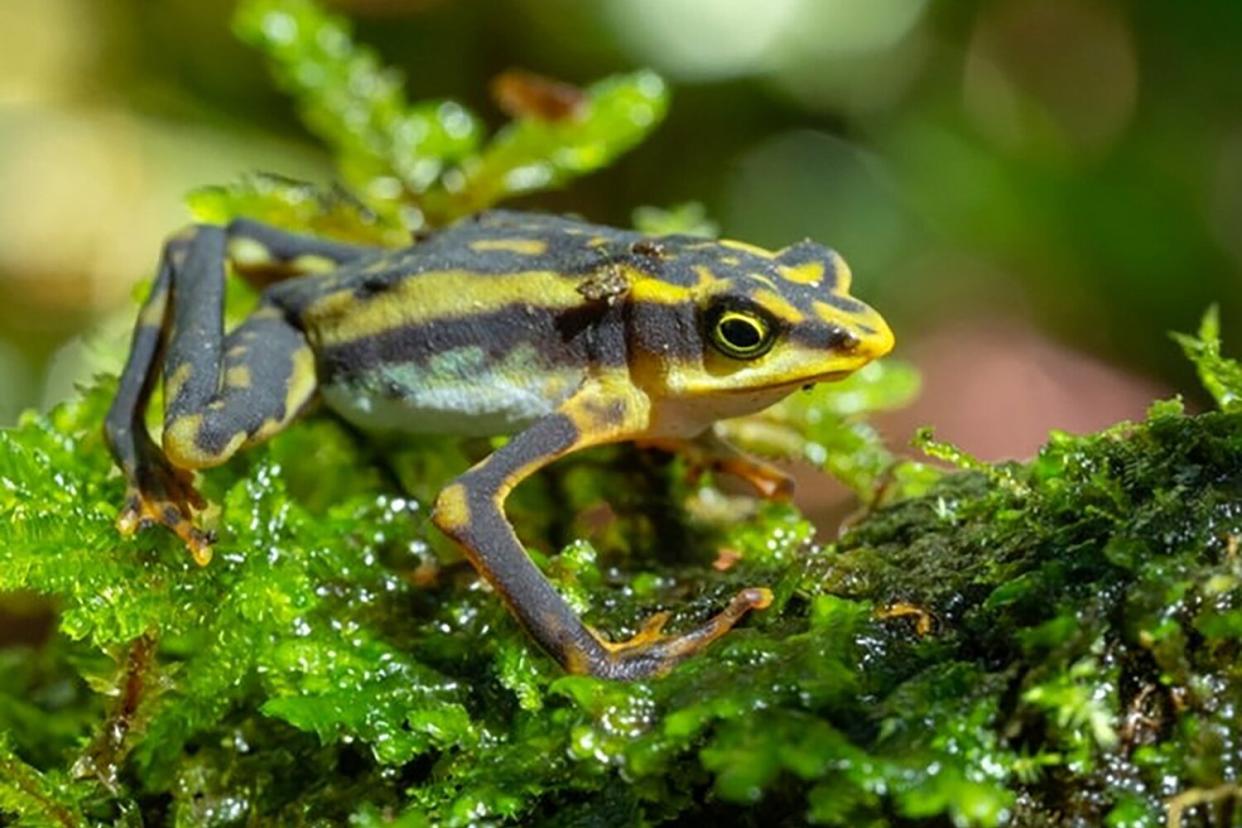Ecologists in Ecuador Rediscover 32 Frog Species Thought to Be Extinct

Morley Read/SWNS
Ecologists have rediscovered 32 species of harlequin frogs in Ecuador that were considered extinct.
The scientists said the rediscovery paints a brighter picture for the future of these frogs and biodiversity in general but stressed the need for conservation action.
Doctoral student Kyle Jaynes from Michigan State University, the lead author of the new frog study, told SWNS, "I can't tell you how special it is to hold something we never thought we'd see again."
"We want people to walk away from this with a glimmer of hope that we can still address the problems of the biodiversity crisis," Jaynes added.
For the past 40 years, a pathogenic fungus has decimated amphibious populations worldwide and has pushed many species to extinction. Once a species is classified as extinct, the chances of it coming back are slim.
That is why the researchers were surprised to find 32 frog species classified as extinct surviving in the Ecuadorian jungle.
"But rediscovery does not equal recovery. This story isn't over for these frogs, and we're not where we want to be in terms of conservation and protection. We still have a lot to learn and a lot to do," Jaynes said.
"This study opens up a lot of other questions," assistant professor Sarah Fitzpatrick, a collaborator on the project, shared. "For example, why are these frogs persisting? What we found points to the fact that there probably isn't a single explanation. And now that we've described these frogs, how do we ensure their recovery?"
RELATED: Rare Pigeon Species Rediscovered in Papua New Guinea After 140 Years
The team — who published their findings in the journal Biological Conservation — also included researchers from Ecuadorian universities and local indigenous communities.
"We really want people to understand how important our partnerships are," Fitzgerald said. "We were invited into this work by our Ecuadorian colleagues. They've been working tirelessly on these challenges for decades. There are so many things that they bring to this work that make it possible."


